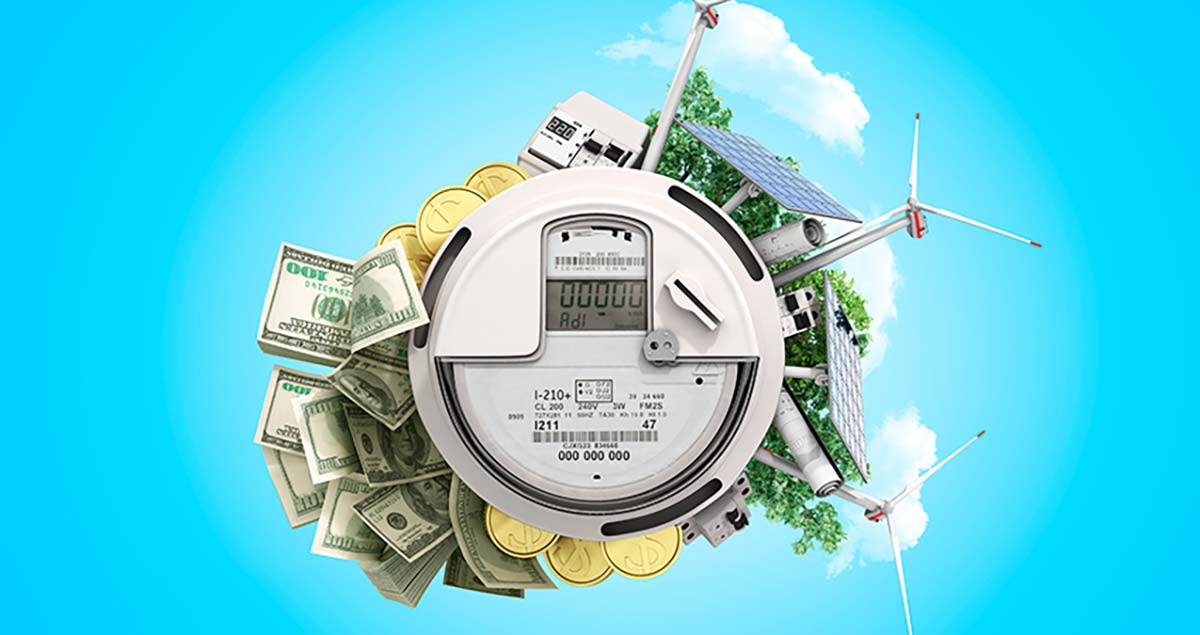'NET METERING' - All you need to know
What is net metering and how does it work?

Net metering, also called net energy metering or NEM, is a utility rate program that requires your electric company to purchase the excess solar energy your solar panels produce at the full-retail rate of electricity.
This means when your solar energy system produces more electricity than your home needs, the excess electricity is sent to the power grid and your utility pays you for it. Net metering is what makes rooftop solar panels such a great way to save money! In fact, the best states for installing solar aren’t the ones that get the most sunshine - it’s the ones with the best net metering policies.
Let’s take a closer look at how net metering can easily put money back in your pocket.
How does net metering work?
In short, net metering gives you credit for returning solar electricity to the grid, and it offsets electricity you take from the utility in the future -- giving you the full economic value of all the solar energy your solar panels produce. If your solar system is sized properly, you can potentially eliminate all of your monthly electric costs.
Solar panels generate the most electricity during the middle of the day when the sun is shining. The problem is that the middle of the day also happens to be when you use the least amount of electricity. So your panels are generating way more electricity than your home needs at that time.
When solar panels produce more electricity than a home uses, the excess generation is sent to the grid. This is where net metering comes into play. When a net metered system sends solar energy to the grid, your electric meter spins backwards and your utility applies a credit for the full retail value of electricity to your account.
Then at night, when your solar panels aren’t producing, you take electricity from the grid, spinning your electric meter forward again. At the end of the billing period, the utility nets how much electricity you sent to the grid versus how much you used to determine your final bill - hence the name net metering.
Do net metering credits carry over from month to month?
It depends on the utility, but most full-retail net metering programs allow energy credits to carry over from month to month. So, if you generate more electricity than you used in a month, the excess net metering credits can be used to offset electricity you take from the grid the next month.
Usually you’ll have excess credits in the summer months, when the days are long and sunny. You can bank up these summer credits to cut down your electric bills in the dark winter months.
How and if credits actually can carry over from month to month depends on your utility’s true-up policy, AKA how often they buy out credits, which you can usually find within their net metering policy.
What are the benefits of net metering?
Utility bill savings
The greatest benefit of net metering to solar homeowners are the utility bill savings. Net metering can result in tens of thousands of dollars in savings over the lifetime of your solar panel system.
As we said earlier, solar panel systems can be designed to offset all of a solar customers’ energy use costs within a billing cycle. However, most electric bills include some fixed charges that net metering can’t eliminate.
Shorter payback periods
Areas that offer full retail net metering will have much shorter payback periods than places that don’t. This is because solar homeowners will be saving more on their electricity bills, and thus recouping their investment costs faster.
Reduces pressure on the grid
Residential solar panels provide a big benefit to utilities (and their customers) because they help reduce the amount of stress on the electric grid distribution system. Because solar homeowners aren’t using power from the grid but using their own electricity instead, there are less people drawing power from the grid directly.
Plus, when a solar system sends excess energy to the grid, that electricity is used by other non-solar utility customers so they can meet their own energy demands. This takes even more pressure off of utility power plants.
Comments
Post a Comment